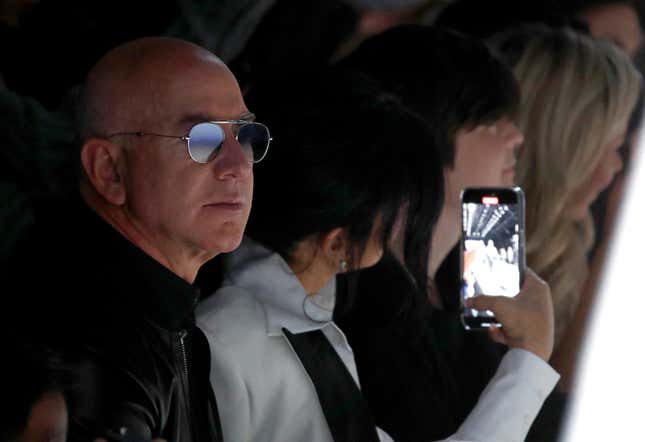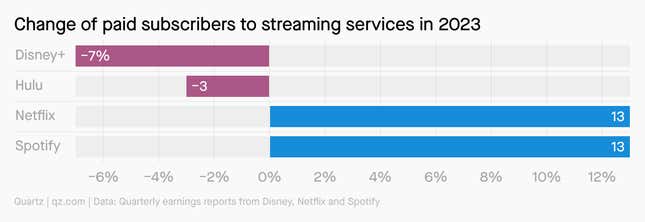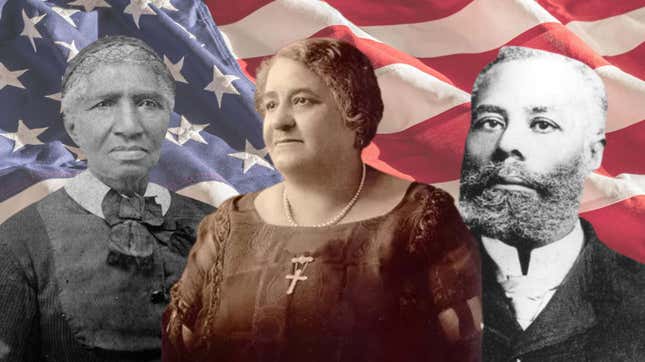
Good morning, Quartz readers!
Here’s what you need to know
Jeff Bezos sold nearly 12 million Amazon shares. The selloff was worth more than $2 billion and there is more to come.
Finland elected its next president. Preliminary results show that center-right candidate Alexander Stubb will come out on top and become the NATO newbie’s 13th leader.
Moody’s downgraded Israel’s credit rating. The country’s finance minister claimed the decision was politically motivated, while the agency said the war in Gaza could adversely affect the country’s economy.
The UK is making plans to revive its nuclear energy fleet. The government wants to take over a plant site in Wales and is seeking a private partner to make a station there, according to the Financial Times.
Disney+ and Hulu have a villain in piracy
Streaming was supposed to kill media piracy. But offering subscribers access to thousands of movies, films, TV shows, and songs all ad-free for a relatively low monthly fee hasn’t hampered the pirates—in fact, a new report found that piracy is on the rise.
As piracy shoots up, streamers’ subscriber bases are dropping. Services like Disney+ and Hulu are steadily losing customers, with paid subscriptions down by as much as 7%.

Quartz’s Bruce Gil looked at how piracy is affecting the streaming giants.
The Black innovators that shaped the US economy

Many American historians and education experts agree that K-12 schools’ history curricula too often highlight stories of trauma and oppression, even during Black History Month. While important, they say, it’s equally significant to bring the accomplishments and achievements of Black Americans to the forefront.
One of those experts—Nafeesa Muhammad, a professor of history at Spelman College in Atlanta—told Quartz that learning the contributions of Black innovators “provides a more comprehensive understanding of African American history” and how the modern-day American economy was formed.
We compiled a list of Black entrepreneurs throughout American history. Read through it here.
Quotable: Why marketers pay $7 million for Super Bowl ads
“You pay for a Super Bowl ad once, but you get free viewership, media coverage, and chatter on social media for free. This increased chatter and media coverage starts before the Super Bowl and continues over several days after the Super Bowl.” —Jura Liaukonyte, a professor of marketing at Cornell University’s SC Johnson College of Business, in an interview with Quartz about the unique communal event the ads create.
More from Quartz
🌿 Clean energy could be “closer than ever” after a nuclear fusion machine smashed a record
🤑 Sam Altman wants to raise up to $7 trillion for his new AI chip project
📈 Bitcoin could hit $50,000 soon as a new crowd of buyers drives up prices
🥣 Snoop Dogg says his dreams died at Walmart—and he’s suing
📺 Amazon is streaming a Prime-exclusive NFL playoff game next year
Surprising discoveries
Florence, Italy’s airport is getting a vineyard. The 38 rows of grapes will be planted on its roof.
The oldest person in the US is 116 years old. Back when Edith Ceccarelli was born, Oklahoma just became a state and Theodore Roosevelt was president.
A website called OnlyFake can generate IDs for $15. They are pretty convincing.
A polar bear sleeping on a small cap of ice is one of this year’s best wildlife photos. The other top four images in the People’s Choice Award are just as striking.
German chancellor Olaf Scholz has a doppelgänger in the US government. Sen. Chris Coons is even around the same age and height.
Did you know we have two premium weekend emails, too? One gives you analysis on the week’s news, and one provides the best reads from Quartz and elsewhere to get your week started right. Become a member or give membership as a gift!
Our best wishes for a productive day. Send any news, comments, airport wine, and cards for Edith to talk@qz.com. Today’s Daily Brief was brought to you by Morgan Haefner.